Ford Focus vs Hyundai Santa Fe - Differences and prices compared
Compare performance (280 HP vs 288 HP), boot space and price (27500 £ vs 51200 £) at a glance. Find out which car is the better choice for you – Ford Focus or Hyundai Santa Fe?
Costs and Efficiency:
Price and efficiency are often the first things buyers look at. Here it becomes clear which model has the long-term edge – whether at the pump, the plug, or in purchase price.
Ford Focus has a clearly advantage in terms of price – it starts at 27500 £, while the Hyundai Santa Fe costs 51200 £. That’s a price difference of around 23700 £.
Fuel consumption also shows a difference: Hyundai Santa Fe manages with 3.80 L and is therefore noticeable more efficient than the Ford Focus with 4.90 L. The difference is about 1.10 L per 100 km.
Engine and Performance:
Under the bonnet, it becomes clear which model is tuned for sportiness and which one takes the lead when you hit the accelerator.
When it comes to engine power, the Hyundai Santa Fe has a minimal edge – offering 288 HP compared to 280 HP. That’s roughly 8 HP more horsepower.
In acceleration from 0 to 100 km/h, the Ford Focus is significantly quicker – completing the sprint in 5.70 s, while the Hyundai Santa Fe takes 8 s. That’s about 2.30 s faster.
In terms of top speed, the Ford Focus performs noticeable better – reaching 250 km/h, while the Hyundai Santa Fe tops out at 196 km/h. The difference is around 54 km/h.
There’s also a difference in torque: Ford Focus pulls hardly perceptible stronger with 420 Nm compared to 380 Nm. That’s about 40 Nm difference.
Space and Everyday Use:
Cabin size, boot volume and payload all play a role in everyday practicality. Here, comfort and flexibility make the difference.
Seats: Hyundai Santa Fe offers evident more seating capacity – 7 vs 5.
In curb weight, Ford Focus is convincingly lighter – 1330 kg compared to 1920 kg. The difference is around 590 kg.
In terms of boot space, the Hyundai Santa Fe offers convincingly more room – 711 L compared to 392 L. That’s a difference of about 319 L.
In maximum load capacity, the Hyundai Santa Fe performs clearly perceptible better – up to 2032 L, which is about 678 L more than the Ford Focus.
When it comes to payload, Hyundai Santa Fe somewhat takes the win – 665 kg compared to 560 kg. That’s a difference of about 105 kg.
Who comes out on top?
Overall, the Ford Focus shows itself to be slightly ahead and secures the title of DriveDuel Champion.
It convinces with the more balanced overall package and proves to be the more versatile choice for everyday use.
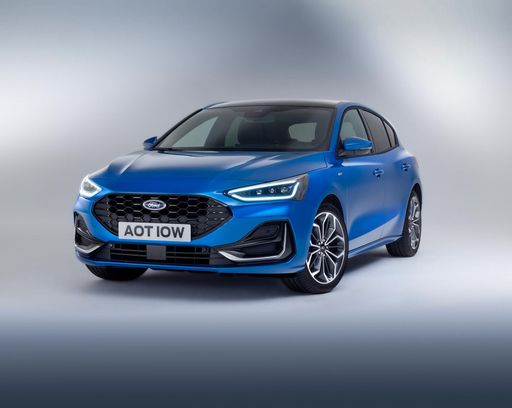
Ford Focus
Costs and Consumption
View detailed analysis
Engine and Performance
View detailed analysis
Dimensions and Body
View detailed analysis
Ford Focus
The Ford Focus remains a clever all‑rounder that balances sharp handling with everyday comfort, making it a strong choice whether your commute is city streets or country lanes. Its practical cabin and sensible running costs mean you’ll spend more time enjoying the drive and less time worrying about ownership, with a playful streak underfoot that keeps things interesting.
details
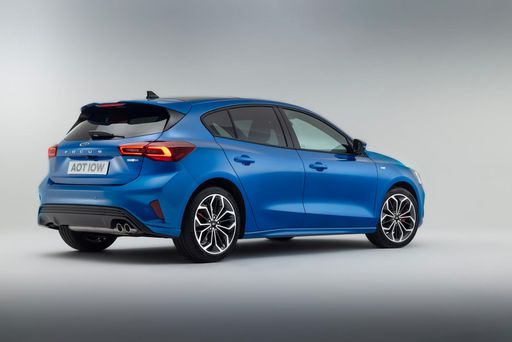
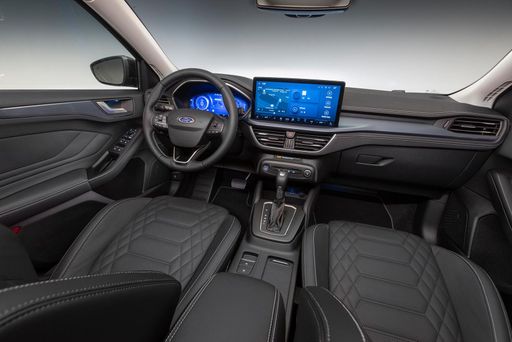
Hyundai Santa Fe
The Hyundai Santa Fe blends practical family friendliness with a hint of premium style, offering roomy, sensible packaging wrapped in modern, confident design. Inside it serves up comfortable seats, straightforward tech and a calm, composed ride that makes daily drives feel a little more grown up — a solid all‑rounder that doesn’t try to be flashy.
details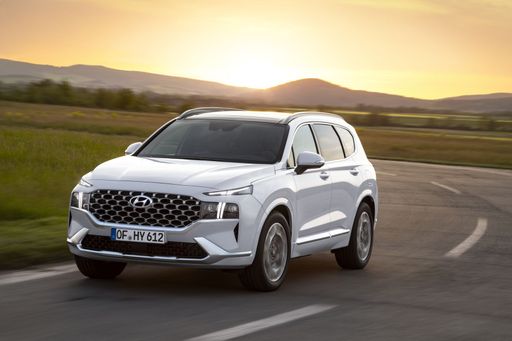
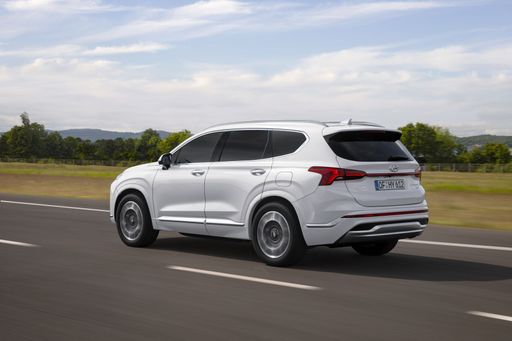

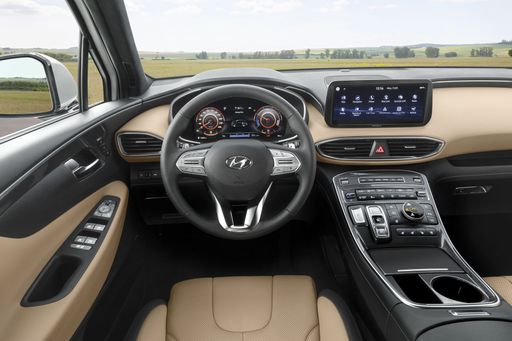
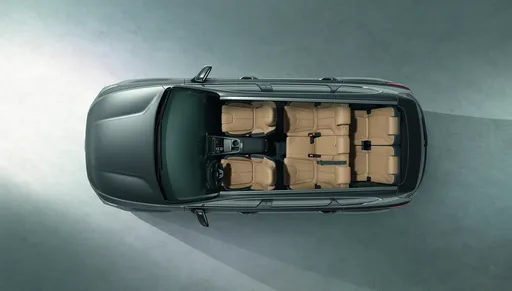
Costs and Consumption |
|
|---|---|
|
Price
27500 - 42700 £
|
Price
51200 - 58600 £
|
|
Consumption L/100km
4.9 - 8 L
|
Consumption L/100km
3.8 - 7.1 L
|
|
Consumption kWh/100km
-
|
Consumption kWh/100km
-
|
|
Electric Range
-
|
Electric Range
54 km
|
|
Battery Capacity
-
|
Battery Capacity
-
|
|
co2
117 - 183 g/km
|
co2
90 - 160 g/km
|
|
Fuel tank capacity
52 L
|
Fuel tank capacity
67 L
|
Dimensions and Body |
|
|---|---|
|
Body Type
Hatchback
|
Body Type
SUV
|
|
Seats
5
|
Seats
5 - 7
|
|
Doors
5
|
Doors
5
|
|
Curb weight
1330 - 1529 kg
|
Curb weight
1920 - 2165 kg
|
|
Trunk capacity
392 L
|
Trunk capacity
621 - 711 L
|
|
Length
4382 - 4397 mm
|
Length
4830 mm
|
|
Width
1825 - 1844 mm
|
Width
1900 mm
|
|
Height
1438 - 1482 mm
|
Height
1720 mm
|
|
Max trunk capacity
1354 L
|
Max trunk capacity
1949 - 2032 L
|
|
Payload
495 - 560 kg
|
Payload
560 - 665 kg
|
Engine and Performance |
|
|---|---|
|
Engine Type
Petrol MHEV, Diesel, Petrol
|
Engine Type
Full Hybrid, Plugin Hybrid
|
|
Transmission
Manuel, Automatic
|
Transmission
Automatic
|
|
Transmission Detail
Manual Gearbox, Dual-Clutch Automatic, Automatic Gearbox
|
Transmission Detail
Automatic Gearbox
|
|
Drive Type
Front-Wheel Drive
|
Drive Type
Front-Wheel Drive, All-Wheel Drive
|
|
Power HP
115 - 280 HP
|
Power HP
239 - 288 HP
|
|
Acceleration 0-100km/h
5.7 - 11.8 s
|
Acceleration 0-100km/h
8 - 9.2 s
|
|
Max Speed
186 - 250 km/h
|
Max Speed
196 km/h
|
|
Torque
170 - 420 Nm
|
Torque
380 Nm
|
|
Number of Cylinders
3 - 4
|
Number of Cylinders
4
|
|
Power kW
85 - 206 kW
|
Power kW
176 - 212 kW
|
|
Engine capacity
999 - 2261 cm3
|
Engine capacity
1598 cm3
|
General |
|
|---|---|
|
Model Year
2022 - 2024
|
Model Year
2025
|
|
CO2 Efficiency Class
D, G
|
CO2 Efficiency Class
E, F, B
|
|
Brand
Ford
|
Brand
Hyundai
|
What drive types are available for the Ford Focus?
Available configurations include Front-Wheel Drive.
The prices and data displayed are estimates based on German list prices and may vary by country. This information is not legally binding.




